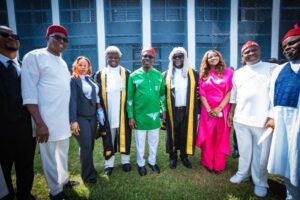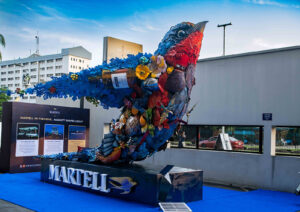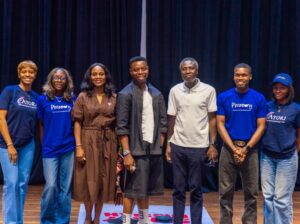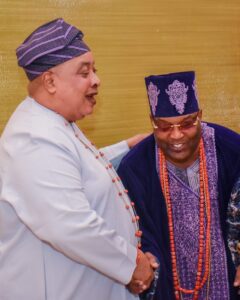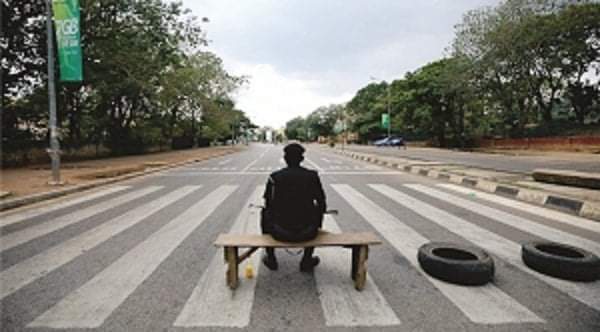
The year, 2020, unfurled like the desert end of Nigeria’s green pasture as the cheerful ‘Happy New Year’ rattled along with tragic undertones from door to door, rural to metro areas.
On the third day of the new year, January 3 to be precise, 19 people were killed by unidentified gunmen in a nighttime raid in Tawari, Kogi State, about 100km (60 miles) south of Nigeria’s capital, Abuja.
The culprits torched homes and other buildings, killing dreams and heartfelt hope.
Three days later, 30 people were killed and 35 injured in a bomb blast that tore through Gamboru, Borno State. No thanks to the Boko Haram terrorist sect, the stranglers of mirth and romance in affected homesteads.
Thus the New Year dawned dewy with lava, scorching the sharp green waking in young shoots at the base of trees; the year 2020 pronounced Nigeria as scorched earth, a country where neither hope nor humaneness may grow again.
The citizenry mourned in concert. Families wailed and wallowed, knowing the meaning of grief by blood-sodden earth. Yet some dreamed of relief. Like surprised travellers, light walkers on dark lawns, they stole through interstices of grief in search of recourse, their minds breaking into moulds into which had fallen, the beauty beyond grief.
February 28, death unspooled in dark toxins, instilling fear into the young and old, the rich and poor alike; the Federal Ministry of Health disclosed that an Italian citizen had been confirmed as the first case of the coronavirus in Lagos, Nigeria.
The raunch and squalor of the plague broke cultural and religious taboo. Wherever it struck, human tissues cowered, viral cells bloomed and split their capsules, spitting pips in the red tide of the victim’s blood.
The coronavirus a.k.a. COVID-19 incited a fable of ugliness in the human experience. By reducing persons to bodies, it cast personality as a totem of renewal and disintegration. It prefigured Nigeria’s struggle with Ebola and its stern, maleficent ghost. COVID-19 could be deadlier, if not well managed; Nigeria cringed.
The virus claimed preeminent and ordinary folk, drawing hot tears from the bereaved’s worn glands, ushering them into phases of grief in queer mazes.
At the backdrop of the pandemic’s death knell, the Emir of Kano, Sanusi Lamido Sanusi, was dethroned on March 9, for “disrespect to lawful instructions.”
In the second quarter of the year, gravediggers in Kano reported a mysterious escalation of death tally on April 28, amid speculations that the deaths may be linked to the COVID-19 pandemic. On April 30, COVID-19 cases in Kano tripled from 77 at the beginning of the week to 219 as health authorities ramped up “verbal autopsies.” State officials insisted most of the fatalities were due to other diseases rather than COVID-19.
On June 9, Nigeria stirred to horrendous news of the Gubio massacre as Boko Haram terrorists reportedly killed at least 80 villagers in Borno. And through the swell of gory incidents, the nation welcomed in July, the cheery news of the World Trade Organization (WTO)’s acceptance of the nomination of two-time Nigerian minister, Ngozi Okonjo-Iweala, as a contender for its advertised post of Director-General (DG).
Nigeria pulsed with controversy in the third quarter of the year as
Yahaya Sharif-Aminu, 22, was sentenced to death by hanging on August 10, in Kano, for alleged blasphemy against Muslim Prophet Muhammad (SAW).
The last quarter of 2020 equally dawned with a dark pall as young Nigerians took to the streets to protest the perceived excesses of the Nigeria Police’s Special Anti-robbery Squad (SARS). The protests surged across the South-south, Southeast and Southwest regions, and the Federal Capital Territory (FCT), Abuja.
Nigeria will never forget Tuesday, October 20, 2020, when police officers launched a hapless defensive against the army of angry youths. Police and protesters, EndSARS and ProSARS, violent and peaceful, a baleful lyric succeeded the conflict.
The highlight of the movement, however, was the botched October 20 protest as armed security personnel dispersed protesters laying siege to the Lekki Toll Gate; the protests snowballed into violence across the country, in Lagos especially, forcing the state governor, Babajide Sanwo-Olu, to declare a 24-hour curfew.
Consciousness, the youth would find, is a slippery slope; #EndSARS mutated to #Endbadgovernance, #Reducepublicofficerssalaries, street carnivals, violence, and looting. In their jazzy rage, the youths forgot how resonantly their threat pitched, and how contradictorily their actions boomed in the deathly sanctums of gun-made spoils.
The Inspector-General of Police, Mohammed Adamu, disclosed that 102 people died, including 37 policemen who were ‘gruesomely murdered’ in the resultant violence from the #EndSARS protests.
Adamu blamed purveyors of fake news for the death of civilians and police personnel and the destruction of police and other public assets.
There is no gainsaying fake news contributed in no small measure to the carnage that rocked the nation in the heat of the #EndSARS protests; for instance, touted victims of the Lekki shooting have come out to refute alleged news of their demise.
On November 28, Nigeria startled to more frightening news of the massacre of about 78 rice farmers in their fields around Zabarmari, about 25 kilometres from Maiduguri, Borno’s capital by Boko Haram.
Abubakar Shekau, leader of the terror group, in a three-minute video, stated that his group killed 78 farmers because “the farmers arrested and handed one of its brothers to the Nigerian Army.”
Friday, December 14, a combined force of Boko Haram and armed bandits laid siege to Kankara in President Muhammadu Buhari’s home state, Katsina, hours after he landed in the state for a week-long visit. The invaders abducted 344 boys from the Government Science Secondary (GSS) school. Although the students were released four days later, the recent abduction has ignited worry over the country’s security situation. If the terrorists could so brazenly operate in President Buhari’s backyard, kidnapping over 300 boys right under his nose, then Nigeria has great reason to worry.
There is no gainsaying the year 2020 tangled one and all in odd rhythms, several people lost their lives; Chukwuemeka Ike, writer; Toyosi Arigbabuwo, actor; Victor Olaiya, highlife trumpeter; Majek Fashek, reggae singer; Abiola Ajimobi, former Governor of Oyo State; Ismaila Isa Funtua, politician. Lest we forget Buruji Kashamu, politician, former Senator; Jimoh Aliu, actor; J. P. Clark, 85, poet; Sam Nda-Isaiah, political columnist, entrepreneur, and journalist, and founder of Leadership Newspapers.
Some lost their jobs but are still very grateful for the rare gift of life; they relish the priceless hours they have yet to dream to the curve of this or that song.
As this dark year peters out, they cherish the privilege of surviving its ravage; a little wearing away, and a little wearing out perhaps. But they are wiser and unfettered by loss.







